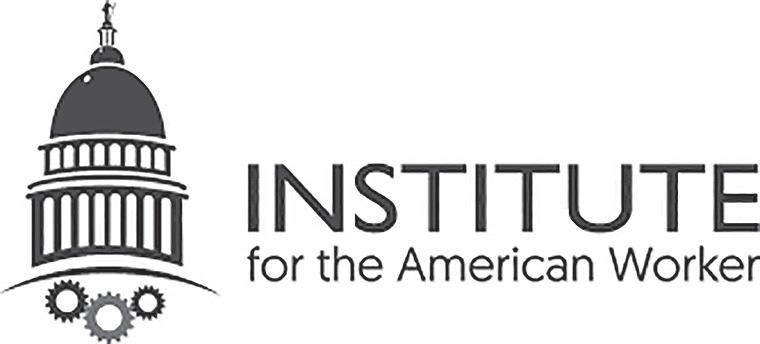
13 minute read
PAGE 12
FREEDOM in ACTION
Emails:
Advertisement
Letter to the executive director of the Washington Education Association:
Dear Director:
I’m happy some public schools have finally re-opened and teachers are back, but some public schools are still closed.
Meanwhile, private and charter schools are open.
These schools provided safe education when public school teachers were AWOL.
I thought public school teachers were critical. Perhaps I was mistaken.
Public school students missed an entire school year. Every one of them suffered academically, but many have also suffered from psychological isolation or physical abuse that may take years to recover from, assuming they ever do.
The current arrangement has also impacted families both financially and emotionally.
Online education is a joke. Charter schools provide parents with a better choice for their education dollars.
Getting a teaching job should require the skills to do the job, not the obligation to join a labor union. The law prevents discrimination based on gender, race, age or ethnicity. Why does it permit forced membership?

I think unions want fraternity because union bosses find it easier than selling teachers on the benefits of joining a “Brotherhood of Labor.”
Just so you know, I’m donating half of my $1,400 COVID stimulus money to the Freedom Foundation, which educates teachers about the U.S. Supreme Court’s 2018 decision in Janus v. AFSCME, which affirmed that mandatory union membership and dues for public employees are a violation of their First Amendment rights.
ARDEAN ANVICK Shelton, Wash.

Parents have had enough; it’s time to re-open schools
By SHELLA SADOVNIK Reprinted from the ORANGE COUNTY REGISTER
April 6, 2021
Imagine reading a text message from your 11-year-old son in which he tells you he wants to die.
Now imagine you’re heartsick, but not entirely surprised. After all, you’ve seen this coming.
Your once-happy, healthy, active child has lately become sullen and depressed. Instead of going out and engaging socially with his friends, he sits in his room day and night surfing the Internet and playing violent computer games.
He has angry outbursts toward his family, he’s gained considerable weight … and now he’s contemplating suicide.
It didn’t used to be this way. Until relatively recently, much of his day was taken up with an activity that challenged his mind, encouraged interaction with his peers and gave him a sense of purpose.
It was called school, and he always did well at it. But it has been over a year since he and all his classmates were barred from the classroom out of fear over COVID-19 and told to educate themselves at home with a laptop and a connection to Zoom.
And it seemed like a prudent idea at the time, given how little we knew about the virus.
But we know considerably more now.
For starters, we know the federal Centers for Disease Control and Prevention has stated with confidence that schools can — and should — re-open for in-class instruction by adopting a few commonsense precautions.
We also know we’re paying a devasting price for distance learning that includes an epidemic of depression, indifference, obesity … and a skyrocketing rates of youth suicide.
Moreover, students are increasingly requiring expensive medical and psychological care, and many already cash-strapped parents have had no choice but to enroll their children in private schools.
Meanwhile, public schools across the state remain closed while the governor, the Legislature and local school districts continue to dicker with the unions representing California teachers over the conditions under which their members will return to the classroom. In Los Angeles, the demands are especially outrageous. They include defunding law enforcement, spending more on homelessness, cash payments and a laundry list of items that have nothing whatever to do with the safety or wellbeing of students or teachers.
For a handful of parents, the unnecessary delays have become intolerable, and now they’ve turned to the courts for help.
On March 30, four families represented by the Freedom Foundation, a national nonprofit advocacy organization that fights against the abuse of power by public employee unions, filed a first-of-its-kind personal injury lawsuit in California Superior Court against the Los Angeles United School District (LAUSD), United Teachers of Los Angeles (UTLA) its president, Cecily Myart-Cruz, and executive director Jeffrey Good, for the damages the protracted closure has caused their children and themselves.
In the lawsuit, the parents’ allegations are focused on the legal relationship between their children, LAUSD and UTLA.
Under the well-established doctrine of in loco parentis — Latin for “in the place of a parent” — LAUSD has a legal responsibility to make decisions and act in the best interests of its students. By failing to return the students to class because of UTLA’s obstruction, LAUSD violated this responsibility.
What’s more, UTLA knew about LAUSD’s responsibility and the harm the plaintiffs’ children were suffering and still continued to prevent a return to class.
The parents are asking the court to recognize these legal relationships and their corresponding responsibilities, and to order that UTLA stop putting its political agenda over the health and well-being of the plaintiffs’ children and the other 600,000 students in LAUSD.
For more than a year, the school district, the teacher’s union and Myart-Cruz have taken actions we now know have resulted in very real damages to the students they’re supposed to be serving.
If their consciences won’t allow them to set aside their politics and opportunism long enough to perform their proscribed duties, maybe the law can.

ON AIR
MARCH 30 , 2021

Central Oregon ODOT worker sues union over dues, invokes Racketeering Act
“The lawsuit was filed on Monday in U.S. District Court in Eugene by the Freedom Foundation, which describes itself as ‘a national nonprofit watchdog organization specializing in public-sector union abuses.’ It names Service Employees International Union (SEIU) 503, the Oregon Department of Administrative Services and its director, Katy Coba, as defendants.”
“The Freedom Foundation asserts that the use of electronic communications to secure withholding of the dues purportedly authorized by the forged membership card constitutes a “pattern of false and fraudulent conduct” that violates the civil Racketeer Influenced and Corrupt Organizations Act (RICO), especially when combined with other alleged cases of ‘misrepresenting the authorization of dues deductions.’ ”
FREEDOM in the NEWS
ON IN PRINT
Feb. 23, 2021
Woman vs. the Union Machine: Suing Oregon, SEIU to vindicate her right not to pay fees
Workers’ rights group taps Nelsen as senior fellow
“The Freedom Foundation, which is representing Ms. Trees, says it is litigating at least four other alleged forgery cases involving SEIU 503. Ms. Trees says she asked her employer’s payroll department to stop deducting dues but was told, ‘we take orders from the union about when to stop deducting dues.’ She recently filed a lawsuit alleging that the SEIU is violating the federal and Oregon versions of the Racketeer Influenced and Corrupt Organizations (RICO) Act.”
ON LINE
March 13, 2021

More case studies in union misconduct
ONLINE
March 17, 2021

“Maxford Nelsen, labor policy director for the Freedom Foundation, has been named a senior fellow by the Institute for the American Worker (I4AW). “We are honored to bring together some of the greatest analytical and strategic minds from the most respected policy organizations working on free market labor policy,” said F. Vincent Vernuccio, president and founder of I4AW.”
Brief argues that Janus also protects nonmembers
The Freedom Foundation has filed an “friend of the court” brief on behalf of itself and client Joseph Johnson in Hoekman v. Education Minnesota, an important case in the U.S. Court of Appeals for the 8th Circuit.
The case concerns the scope of the Supreme Court’s landmark decision in Janus v. AFSCME.
Imagine you started a new job and were informed by your employer the law required a certain amount of your pay deducted and given to a third-party employee representation organization whose values and tactics you abhorred. Still, you were told you could either become a member and pay full dues or opt out
By TIMOTHY R. SNOWBALL Litigation Counsel
of membership but still pay an “agency fee” amounting to about 95 percent of you were paying to start with.
If this hypothetical was presented in any context other than a public labor union, we’d call this “choice” what it very plainly was — a shakedown.
In its brief, Freedom Foundation argues that Janus protects the First Amendment rights of members just as much as non-members.
Most importantly, a deduction process that is entirely controlled by unions, which have a direct interest in seeing the money continue to flow no matter what, is inherently unconstitutional. Rather than employers confirming their own employees have waived their First Amendment rights, or putting processes in place to make sure no money is taken from their paychecks unless they’ve already done so, the unions get to decide.
The First Amendment forbids such a backward and unfair scheme.
There are also specific requirements that make a waiver of constitutional rights, like the right against compelled speech, valid.
Judges are not supposed to simply assume a supposed waiver of rights is valid. Instead, they’re supposed to consider the evidence for the waiver and decide whether or not someone actually intended to do so.
This means investigating whether someone actually knew they were waiving their rights, whether they did so freely and whether their waiver was current. Unions change their political messaging all the time. Just because you consented once doesn’t mean you consent forever.
Public-sector unions and their government allies will stop at nothing in order to see the Janus decision gutted and rendered a dead letter.
LA LAWSUIT
Continued from page 1
as what you’d expect to find in any large, impersonal penal institution. But wait, it gets worse.
According to the agreement, here’s what recess will look like:
“Students may not engage in any play that involves touching, tagging, bumping or approaching another student closer than six feet. At this time, playground equipment will be off-limits to students.”
And then there’s this: will have them immediately confiscated and quarantined for a week before being returned.”
Just to restate the obvious, there are two components to school — learning and socialization.
For the past year, neither of these goals has been met while students have cowered at home in front of a laptop screen. And nothing in the hybrid plan will make any great difference.
Beyond that, Strobel’s decision was also the wrong one because it assumes UTLA leaders would make a good faith effort to ensure teachers are in the classroom on Monday.
If the union was only concerned about student and teacher safety, it could have complied with guidelines set forth by the federal Centers for Disease Control last July and opened more or less normally in the fall.
Unfortunately, the pandemic has presented UTLA and its president, Cecily-Myart Cruz, with bargaining leverage it didn’t have before — even with the threat of a strike.
Not only does the union want financial considerations, but its leaders have also floated demands that have nothing to do with wages, benefits or working conditions before teachers will return to the classroom. These include such radical leftist ideals as: n defunding law enforcement; n creation of a single-payer healthcare system;
n full funding for California’s homeless population; n a new set of programs to address the state’s “systemic racism” problem; n elimination of publicly funded, privately operated charter schools; and, of course; n a sweeping array of new taxes on the state’s wealthy to pay for it all.
Again, Judge Strobel’s response might have been the correct one if there were no pandemic, no urgency to address youngsters currently suffering under the existing arrangement and no union determined to exploit the crisis and hold thousands of students hostage to its decidedly political agenda.
Unfortunately, we have all of the above.
ACTION TIMELINE
SPOTLIGHTING SOME OF THE FREEDOM FOUNDATION’S NOTEWORTHY ACCOMPLISHMENTS OF THE PAST MONTH
March 19
Attorneys for the Freedom Foundation on March 19 filed a request for certiorari in Boardman v. Inslee, which challenges Initiative 1501, a 2016 Washington state ballot measure that promised to crack down on identity theft targeting seniors but, in fact, was intended to prevent thousands of homecare providers from discovering they could no longer be forced to join or pay dues to a labor union.
March 29
The Freedom Foundation files suit on behalf of Oregon Department of Transportation worker Staci Trees, who alleges the union denied her lawful request to opt of the union. And in the process, SEIU 503 not only authored a series of dishonest electronic communications, but union operatives allegedly forged Trees’ signature on a bogus membership contract in order to continue collecting her dues of about $100 a month. The Freedom Foundation has filed lawsuits on behalf of four other Oregon public employees — and as many as 10 in neighboring Washington and Oregon. Because of that and the multiple fraudulent communications, Freedom Foundation attorneys are accusing SEIU 503 of violating the Racketeer Influenced and Corrupt Organizations (RICO) Act.
By the numbers
Between April 7 and 13, 428 public employees opted out of their union thanks directly to the efforts of the Freedom Foundation.
April 4
The lead editorial in the Wall Street Journal, “The SEIU as ‘Infrastructure’: Biden’s $400-billion plan to expand the union’s dues-paying membership,” cites Freedom Foundation research, noting, “This is an SEIU pattern around the country. According to the Freedom Foundation think tank, states diverted $150 million in 2017 from caregiver Medicaid payments to unions. This money finances labor advocacy and Democrats.”
April 7
Los Angeles County Superior Court Judge Mary Strobel’s denies the Freedom Foundation’s request for a temporary restraining order against United Teachers of Los Angeles (UTLA) in a personal injury lawsuit designed to get local kids back into the classroom despite the ongoing COVID restrictions. Strobel claimed there was no real need for a TRO since the county’s schools were scheduled to open the following Monday, but her ruling neglected to recognize that, under the hybrid arrangement being used, students would only be in class for a few hours a day. Plus, the union had officially dropped none of the demands it was making for teachers to return to class permanently. The lawsuit will continue.
April 15
The Freedom Foundation files a “friend of the court” brief on behalf of itself and client Joseph Johnson in Hoekman v. Education Minnesota, an important case in the U.S. Court of Appeals for the 8th Circuit. In its brief, Freedom Foundation argues that a deduction process that is entirely controlled by unions, which have a direct interest in seeing the money continue to flow no matter what, is inherently unconstitutional.
April 15
For the third time, the Freedom Foundation has obtained a successful outcome for a Medicaid-compensated homecare provider whose signature was forged on a membership agreement so her union could continue deducting dues from her modest pay against her wishes. Maria Gatdula, a home-based caregiver in Washington, first attempted to opt out of SEIU 775 in 2019. The union, however, refused to honor her request, claiming she had signed an electronic membership agreement in October 2019 that required her to pay dues — and union-directed political contributions — until 2020. When it was determined the document had been forged, SEIU 775 grudgingly agreed to refund dues it had deducted illegally.
You can do something today to impact the next generation.

Keep fighting for freedom by creating a legacy gift to the Freedom Foundation.
Have questions? We can help. Call us at (360)956-3482. Ask for Mark.



